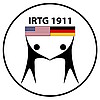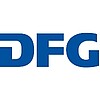B8 (2019 - 2022) - HIF-1α as a modulator of pathogen environment in fungal infections
Histoplasma capsulatum(Hc) is a pathogenic fungus that exhibits a dimorphic lifestyle. The environmental mold form produces spores that transform into the pathogenic yeast phase, once they are inhaled. Hc causes severe manifestations in immunocompromised patients. The primary immune response by macrophages (MΦ) is subverted by different pathogen mechanisms. Hcis killed in dendritic cells (DCs) within two hours by phagosome-lysosome fusion, but survives in MΦ. During infection, there is granuloma formation that produces a hypoxic environment. The transcription factor hypoxia-inducible factor 1α (HIF-1α) is stabilized in oxygen-restricted conditions as well as by pathogens. HIF-1α maintains cell homeostasis by regulating innate immunity and host cell metabolism. Further, HIF-1α promotes xenophagy, which redirects host autophagy for pathogen degradation. Autophagic activity is indicated by conversion of microtubule-associated protein 1A/1B-light chain 3 (LC3) to LC3-II by conjugation to phosphatidyl-ethanolamine which is then incorporated in autophagosomal membranes. Within the last two PhD periods, we investigated the impact of HIF-1α and host autophagy on Hcsurvival in human MΦ.
Aims:
1. Compare the impact of HIF-1α stabilizing effects on antifungal activity in M1, M2 or multinucleated MΦ
2. Dissect molecular pathways regulating inverse correlation of HIF-1α and LC3-II in human MΦ and their impact on phagosomal composition
3. Assess the impact of Hc infection on HIF-1α and host cell metabolism in human moDCs and vice versa
Principal Investigators


Students




